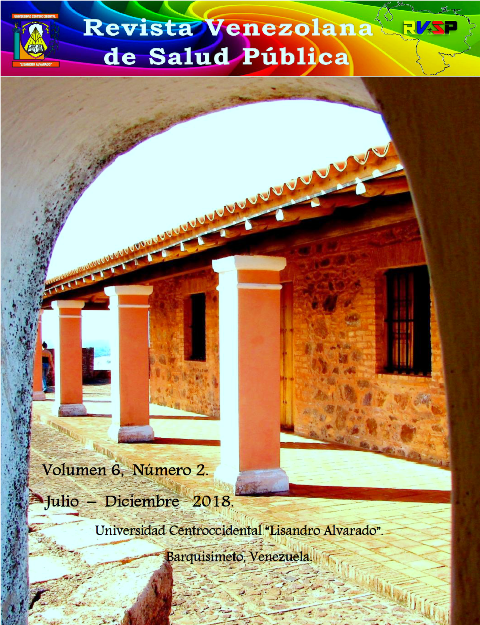Malnutrition and the food crisis on the hope of life of the Venezuelans
Keywords:
Venezuela, nutritionAbstract
Malnutrition and the food crisis are facts that affect the majority of people living in Venezuela; this situation has been mentioned in this magazine on several occasions through research articles, as a public health problem. On the other hand, the Caritas Organization of Venezuela, estimates that in our country 280,000 children could die from malnutrition. In this sense, the studies reveal that during the year 2017, between five and six children died weekly due to lack of food, and that at least 33% of the child population had a delay in their growth1. In addition, malnutrition increases the risk of infections, viruses and bacteria, which leads to the appearance of various diseases typical of poorly nourished people; Among them are infections that in some cases, especially children, require prolonged hospital stays that affect their psychomotor development. One is Kwashiorkor, common in babies and children suffering from a strong protein deficiency; Its consequences are diarrhea, edema, liver damage and lack of growth. On the other hand, Marasmus is a type of malnutrition that occurs when the person's diet is insufficient in both calories and proteins; children with this malnutrition are very thin, with enlarged eyes
Downloads
References
2. Furgiuele G. Desnutrición en el Servicio de Pediatría de un Hospital Universitario del Estado Carabobo. Octubre 2015-Marzo-2016. Universidad de Carabobo, Bárbula; 2016.
3. United Nations International Children's Emergency Fund (UNICEF).5 formas de acabar con la desnutrición infantil. [consultado el 23 de Septiembre 2018]. Disponible en:https://www.unicef.es/blog/5-formas-de-acabar-con-la-desnutricion-infantil.
Published
How to Cite
Issue
Section
Derechos del/de autor/es a partir del año de publicación
Esta obra está bajo la licencia:
Creative Commons Reconocimiento-NoComercial-CompartirIgual 4.0 Internacional (CC BY-NC-SA 4.0)
Las opiniones expresadas por los autores no necesariamente reflejan la postura del editor de la publicación ni de la UCLA. Se autoriza la reproducción total o parcial de los textos aquí publicados, siempre y cuando se cite la fuente completa y la dirección electrónica de esta revista. Los autores(as) tienen el derecho de utilizar sus artículos para cualquier propósito siempre y cuando se realice sin fines de lucro. Los autores(as) pueden publicar en internet o cualquier otro medio la versión final aprobada de su trabajo, luego que esta ha sido publicada en esta revista.



